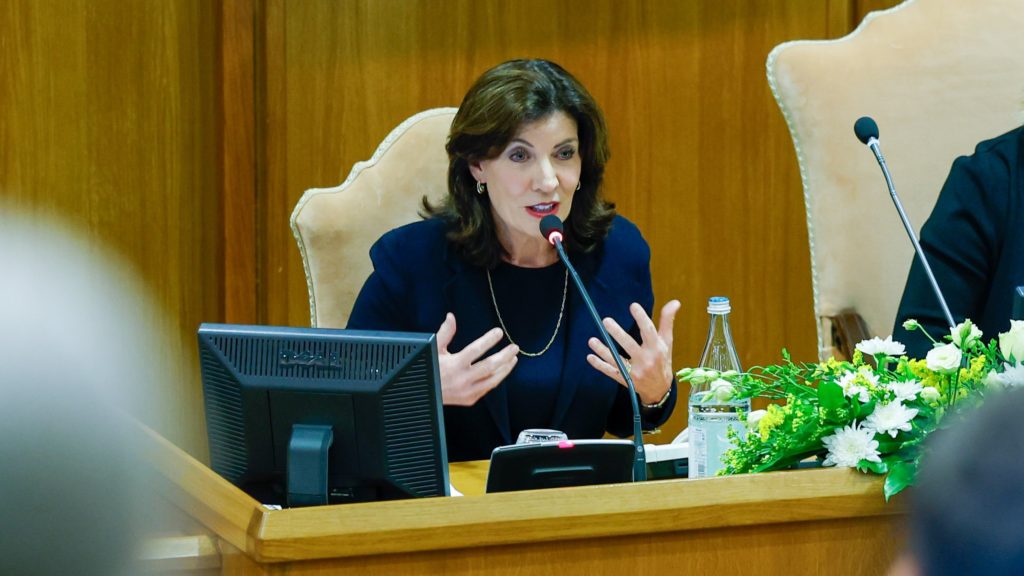The Diocese of Albany, New York, said May 21 it planned to appeal to the U.S. Supreme Court after New York's highest court ruled the Empire State can continue to require companies with health insurance plans to cover what it called medically necessary abortions.
The diocese, alongside other religious groups, challenged the regulation, arguing its exemption for religious employers was too narrow and could force some employers to violate their religious beliefs.
"While we respect the decision issued today by the New York State Court of Appeals we will again seek review by the United States Supreme Court of this critical challenge to religious freedom by filing a timely petition for a Writ of Certiorari," a statement from the diocese said. "The United States Supreme Court previously granted our petition for a Writ of Certiorari on this constitutional challenge and vacated the New York lower court decision with a remand direction for further review."
At stake, they argued, "is regulatory action by a state to require religious organizations to provide and pay for coverage of abortion in their employee health plans."
"We believe this is unconstitutional since it involves government entanglement in the fundamental rights of free exercise of faith and conscience," the statement said. "The final decision on constitutionality will be by the United States Supreme Court."
The challengers argued that the original regulation was intended to exempt employers with religious objections, but that it was later narrowed to cover religious groups that primarily teach religion and mostly serve and hire only those who share their faith. In effect, groups such as Catholic Charities, which seek to serve those in need regardless of their faith, wouldn't qualify.
The regulation requiring most private insurance plans to cover abortion was implemented in 2017, but the state Legislature separately codified it into law in 2022. The challengers sued over the regulation, not the law.
The outcome was applauded by Democratic Gov. Kathy Hochul, but the state's Catholic conference pushed back, arguing Hochul's characterization of the challengers wasn't true.
"While right-wing extremists attempt to undermine our fundamental freedoms, New York will continue standing strong to protect women's health care and safeguard abortion rights," Hochul said in a statement. "The Court of Appeals' unanimous ruling to uphold New York's nation-leading regulations for insurance coverage of abortion care is a critical step towards protecting these fundamental freedoms. As Governor, I'm committed to ensuring New York continues to be a safe harbor for anyone who needs abortion care."
Dennis Poust, executive director of the New York State Catholic Conference, the public policy arm of the state's bishops, said in a statement that Hochul "could have simply put out a statement supporting the court's ruling. Instead, she delved into name calling, referring to the plaintiffs in the case as 'right-wing extremists.'"
"To be clear, this case had nothing to do with the legality of abortion; it only involved the question of whether the state could force religious employers to violate the tenets of their faith by mandating coverage for abortion in employee health insurance plans," Poust said. "Last week Governor Hochul met Pope Francis at the Vatican during a conference on the climate crisis that he hosted, and she spoke fondly of the experience. But by the Governor's definition, Pope Francis himself would qualify as a "right-wing extremist" because he does not share her views on abortion."
Poust argued that "Governor Hochul's words regarding the plaintiffs are divisive and offensive. She should apologize." He said that among the plaintiffs in the case are the Catholic dioceses Albany and Ogdensburg; the Sisterhood of St. Mary; Catholic Charities of the dioceses of Brooklyn, Albany and Ogdensburg; St. Gregory the Great Roman Catholic Church Society of Amherst; First Bible Baptist Church; Our Savior's Lutheran Church; and Teresian House Nursing Home.

